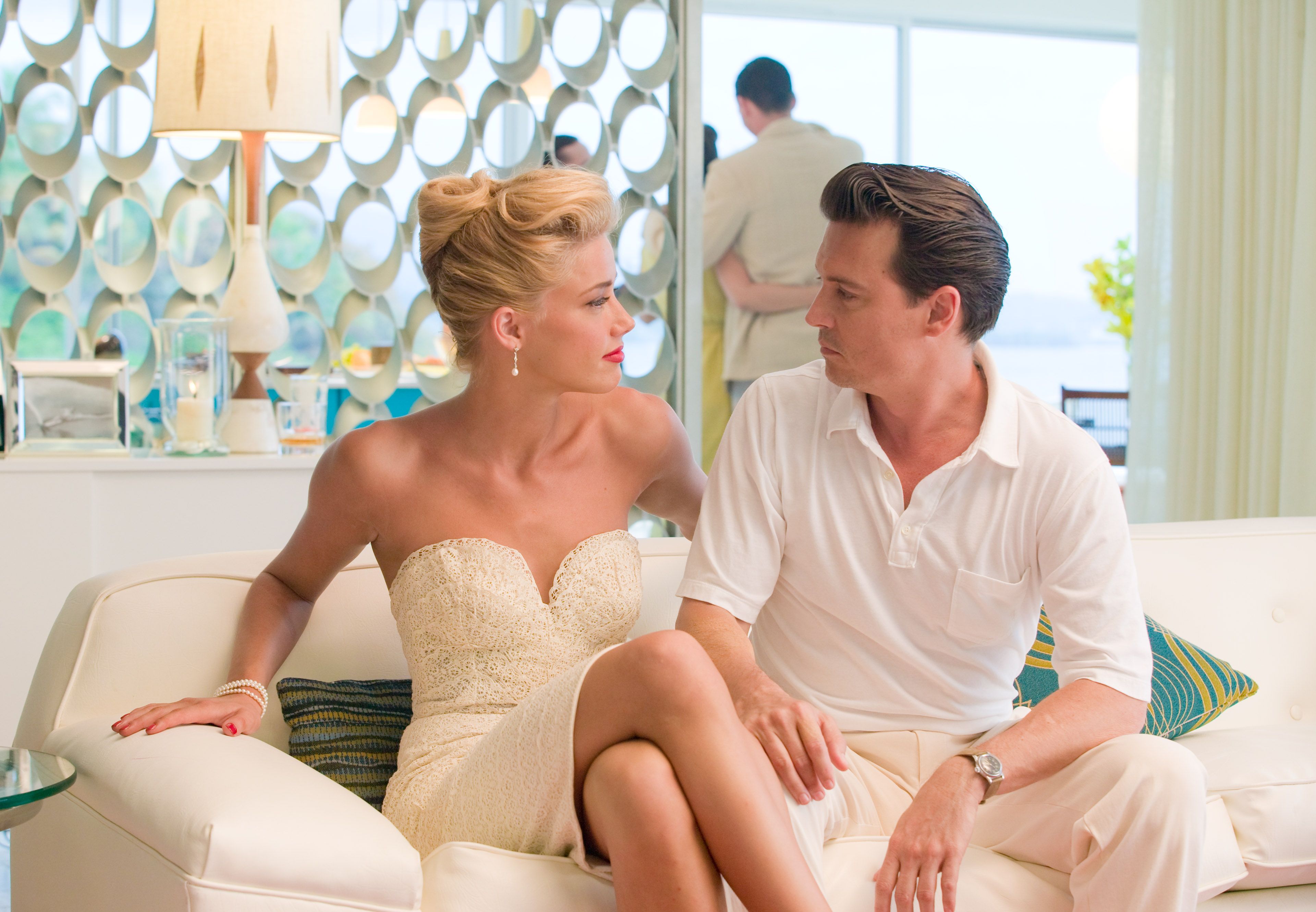
It looks like it picks up pretty good speed in the sequence, but how dangerous was it exactly? Additionally, the interviewer noted that Depp claimed that he nearly died in a plane crash with director Bruce Robinson. Next, the interviewer inquired about how fast the car was actually driving. “They would not let me anywhere near the steering wheel of that thing,” Heard responded. The interviewer asked the actor if they allowed her to drive the iconic car in The Rum Diary.
#THE RUM DIARY DRIVER#
However, Heard explained that Depp is a bad driver and doesn’t have much respect for the rules of the road. Over the course of the video, there’s a lot of discussion surrounding fast cars. TheCelebFactory interviewed Heard to talk about The Rum Diary and what it was like working with Depp. Amber Heard called Johnny Depp a bad driver with ‘no respect’ for rules or speed limits on ‘The Rum Diary’ However, some audiences are going back to the interviews from this period to analyze their dynamic from the early days of their meeting. However, the journalist will have to decide to use his journalistic skills for good or evil.ĭepp and Heard co-star in The Rum Diary, which was a personal project for Depp and a big stepping stone role for Heard. He develops an obsession for Chenault (Heard), the fiancée of a sketchy businessman (Aaron Eckhart). The story follows a journalist named Paul Kemp (Depp) who decides to take a job in Puerto Rico. Thompson, to bring The Rum Diary to the silver screen. Amber Heard and Johnny Depp co-star in ‘The Rum Diary’ L-R: Johnny Depp and Amber Heard | Stephane Cardinale/Corbis via Getty Imagesĭepp worked with the author of the original book that the based on, Hunter S.
#THE RUM DIARY TRIAL#
However, the two would ultimately develop a relationship that landed them into a defamation trial based on Heard’s op-ed alleging that Depp is an abuser. If you're a Thompson fan, it's a no-brainer.The Rum Diary actor Amber Heard once slammed Johnny Depp as a driver and said that he had “no respect” for the rules of the road. The bottom line: if you enjoy well-paced writing with a side order of wicked humor, you'll love it. My biggest quibble is that the story fizzles out towards the end (but to be fair, that's an overall tendency in Thompson's works). While the book is somewhat less "gonzo" than the film's trailer would have you believe, many segments involve Thompson's usual predilections for absurd situations, over-the-top characters, alcohol and assorted "bad craziness." There are glimpses of HST's future style, but overall, The Rum Diary is very much a traditional novel. He wrote The Rum Diary when he was in his early 20s, and one can spot his influences, particularly Hemingway and Fitzgerald (Thompson used to spend hours retyping their stories, trying to get a sense of their pacing and rhythm).

Like any good Thompson story, the descriptions are vivid, with rich characterizations and a journalist's eye for detail. The novel is based on Hunter Thompson's time as a journalist in Puerto Rico and the people he worked with.

I read The Rum Diary several years ago and thoroughly enjoyed it. Not "Fear and Loathing in Las Vegas," but a good read The best parts of the book are its occasional, almost grudging, acknowledgments of natural beauty the people in it are no more than props. His style is less hallucinatory and exclamatory than it later became, but the groundwork is there. As he always has done, Thompson lays on the drinking and general hell-raising very thick (the amount of rum consumed would dry up a distillery) and indulges flashes of bad temper toward commercialism while always showing a willingness to do whatever it takes to make a buck. He comes between a wild colleague and the equally unbuttoned young Connecticut girl he has brought out to visit him, and the end is a youth's easy-won nostalgia for a silly, drunken time. He gets involved in a drunken fight with the police, is thrown in jail, bailed out and goes in for a little shame-faced PR writing. He observes the island, as the invasion of American tourists and values is just beginning to change its lazy, sun-struck character. An introduction sets the scene, and the novel that follows is almost equally documentary in tone: young Kemp comes aboard at the News, gets to know its perpetually embattled proprietor and some of his feckless staff. It is very much a young man's book, clearly based on Thompson's own situation and some of the people-mostly drunks and layabouts-who gravitated to a loosely supervised journalistic stint in the tropics.

When the celebrated iconoclast was a feisty kid working for an English-language newspaper in San Juan 40 years ago, he wrote, and then put aside, a novel, which is here resurrected.


 0 kommentar(er)
0 kommentar(er)
